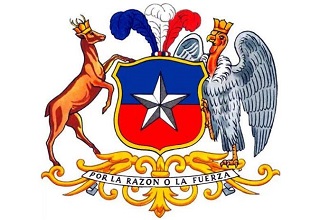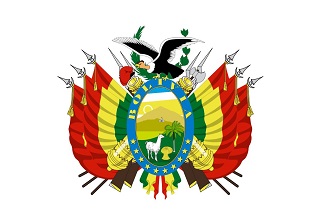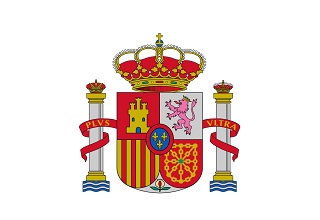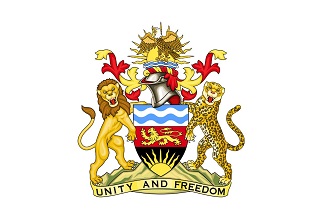Regarding the Inspection and Quarantine Requirements for Wild Aquatic Products from Kiribati to China
I. Inspection and Quarantine Basis
(I) "Law of the People's Republic of China on Entry and Exit Animal and Plant Quarantine", "Regulations for the Implementation of the Law of the People's Republic of China on Entry and Exit Animal and Plant Quarantine", "Law of the People's Republic of China on Import and Export Commodity Inspection", "Regulations for the Implementation of the Law of the People's Republic of China on Import and Export Commodity Inspection", "Food Safety Law of the People's Republic of China", "Regulations for the Implementation of the Food Safety Law of the People's Republic of China";
(II) "Measures for the Administration of Import and Export Food Safety of the People's Republic of China" and "Regulations on the Registration and Administration of Overseas Production Enterprises of Imported Foods of the People's Republic of China";
(III) "Protocol on Inspection, Quarantine and Sanitation Requirements for Wild Aquatic Products Exported from Kiribati to China between the General Administration of Customs of the People's Republic of China and the Ministry of Fisheries and Marine Resources Development of the Republic of Kiribati" (hereinafter referred to as the "Protocol").
II. Scope of imported products
Wild aquatic products refer to wild aquatic animal products and their products, algae and other marine plant products and their products for human consumption, excluding species listed in the appendix of the Convention on International Trade in Endangered Species of Wild Fauna and Flora (CITES) and the List of Key Protected Wildlife in China (LSKPWA), live aquatic animals and aquatic animal and plant propagation materials.
III. Requirements for production enterprises
Production enterprises (including fishing vessels, processing vessels, transport vessels, independent cold storage, the same below) that export wild aquatic products to China should be approved by the Ministry of Fisheries and Marine Resources Development of Kiribati and be effectively supervised by it. The food safety and sanitation conditions of production enterprises shall comply with the requirements of relevant food safety laws and regulations of China and Kiribati.
According to the relevant provisions of the Food Safety Law of the People's Republic of China and its implementing regulations and the Law of the People's Republic of China on Entry and Exit Animal and Plant Quarantine and its implementing regulations, production enterprises that export wild aquatic products to China shall be recommended by the Ministry of Fisheries and Marine Resources Development of Kiribati to the Chinese Customs for registration. Without registration, they shall not be exported to China.
IV. Requirements for imported products
The Ministry of Fisheries and Marine Resources Development of Kiribati shall ensure that wild aquatic products exported to China meet the following conditions:
(i) They are legally caught in Kiribati’s exclusive economic zone (Gilbert Islands, Phoenix Islands and Line Islands).
(ii) The raw materials and products do not have the following problems:
1. Aquatic animal diseases listed in the List of Animal Quarantine Diseases for Import into the People’s Republic of China and the World Organization for Animal Health (WOAH) that must be reported and are related to the products of the Protocol have occurred in Kiribati, causing or may cause infection to wild aquatic products exported to China;
2. Any major food safety incidents have occurred in Kiribati, which have affected or may affect wild aquatic products exported to China;
3. Wild aquatic products exported or to be exported to China by Kiribati seriously violate the laws and regulations of China and Kiribati and the provisions of the Protocol;
4. Any major public health incidents have occurred in the production enterprises, such as employees infected with major infectious diseases, which have contaminated or may contaminate wild aquatic products exported to China and their packaging and transportation vehicles;
5. The fishing area is affected by pollutants, such as radioactive pollutants, which have contaminated or may contaminate wild aquatic products exported to China.
(III) No drugs or additives banned by both parties are used directly or indirectly, and drugs or additives restricted or permitted by both parties are used in accordance with regulations; after inspection by the competent authorities, no pathogenic microorganisms, toxic and harmful substances and foreign matter listed in the laws and regulations of China and Kiribati are found.
(IV) All wild aquatic products exported to China are safe, hygienic and suitable for human consumption after inspection and quarantine by the competent authorities. No pathological signs of infectious and parasitic diseases are found, and no aquatic animal diseases listed in the "List of Animal Quarantine Diseases for Entry into the People's Republic of China" and the World Organization for Animal Health (WOAH) that must be reported are found.
(V) The entire process of fishing, production and processing, packaging, storage, transportation, transit and export meets the relevant safety and sanitation requirements and traceability requirements of both parties for aquatic products, and also meets the relevant safety and sanitation requirements of the cold chain.
V. Certificate requirements
Each batch or container of wild aquatic products exported to China shall be accompanied by at least one original health certificate to prove that the batch of products complies with the relevant laws and regulations of China and Kiribati on food safety and the relevant provisions of the Protocol. The Ministry of Fisheries and Marine Resources Development of Kiribati shall fill in the information of the production enterprises involved in the whole process from fishing, production and processing, packaging, storage, transportation, transit and export on the health certificate.
The certificate shall be printed in Chinese and English (English is the required language when filling in the certificate). The format and content of the certificate shall be approved by both parties in advance. The Ministry of Fisheries and Marine Resources Development of Kiribati shall promptly provide the certificate sample, the official issuing agency seal and the handwriting of the signing official to the Chinese Customs for filing. If there are any changes in the content and format of the certificate sample, the official issuing agency seal and the handwriting of the signing official, the Ministry of Fisheries and Marine Resources Development of Kiribati shall file it with the Chinese Customs at least one month before it takes effect.
VI. Packaging and labeling requirements
Wild aquatic products exported to China shall have outer packaging and separate inner packaging. The inner and outer packaging shall be new materials that meet international food safety standards and meet the requirements of preventing contamination by external factors.
The inner and outer packaging shall have firm, clear and easily identifiable Chinese and English labels, indicating the following: product name and scientific name, specifications, production date, batch number, shelf life and storage conditions, production method (marine fishing, freshwater fishing), production area (marine fishing area, freshwater fishing country or region), all involved production enterprises (including fishing vessels, processing vessels, transport vessels, independent cold storage) name, registration number and address (specific to state/province/city), destination (must be marked as the People's Republic of China).
For wild aquatic products imported into China in pre-packaged form, the pre-packaged Chinese label shall comply with the requirements for the labeling of imported pre-packaged foods in China.
VII. Other requirements
China Customs implements inspection and quarantine on imported wild aquatic products.
For unqualified products, they will be returned, destroyed or otherwise handled in accordance with Chinese laws and regulations. For production enterprises with serious problems or repeated unqualified problems, China Customs will take measures such as strengthening inspection and quarantine or suspending imports.
GACC
July 23, 2024




